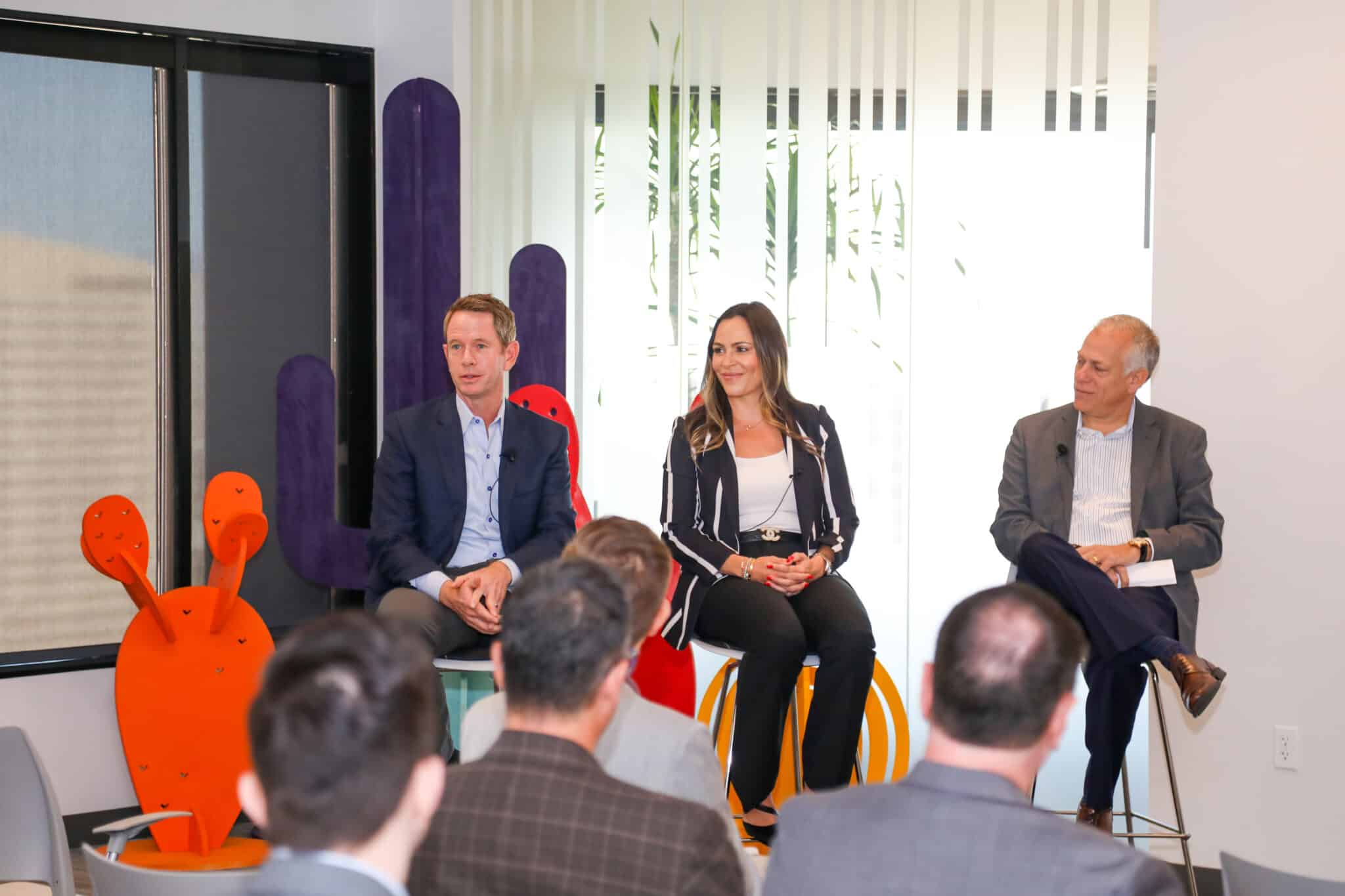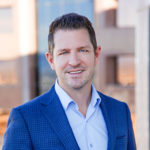

Greater Phoenix’s high adoption of flexible work and evolving office models bolsters market resiliency
Published: 12/08/2023
Updated: 04/16/2024
by Chris Camacho, president & CEO, Greater Phoenix Economic Council (GPEC)
Since the downturn of the Great Recession, Greater Phoenix has continually advanced its competitive position through the quick adoption of policies and practices that allow for industry diversification, support emerging technologies and enable agile response to changing economic conditions. This growth mindset has led to a resilient, diverse regional economy with a deep and talented workforce.
Greater Phoenix was among the quickest regions to recover all job loss from COVID-19, doing so by November 2021, and the region continues its upward trajectory with expected job growth of 2.34% from 2023 to 2024, according to recent findings from the University of Arizona Economic and Business Research Center. Additionally, the market was a top metro for net migration during the pandemic, with 1.8% year-over-year population growth from 2020-21. This group, made up of many tech, corporate and finance workers, chose Greater Phoenix due to flexible work arrangements and stayed for the many lifestyle benefits the region offers, continuing to enhance the state’s talent pool.
Economic data shows a wide adoption of remote and flexible work arrangements with Arizona ranking No. 2 for the highest percentage of establishments with employees working remotely “all of the time,” 17.4% in the state compared to 11.1% for the U.S. as a whole. In addition, Arizona ranked third in the nation for the percentage of businesses with employees who work remotely “all or some of the time” — 34.9% in Arizona compared to 27.5% across the U.S., as reported by the Bureau of Labor Statistics.
As hybrid flexibility and remote work – which have been shown to increase employment satisfaction and retention – solidify into the new normal, new approaches to office space are becoming widespread. An increasing number of firms are procuring physical working space with amenities and alternative modeling at top of mind, allowing them to utilize a smaller space while seeing the same amount of productivity.
When GPEC surveyed companies on their return-to-office plans, asking if they would enact a fully work-from-home structure, hybrid model, hoteling model or go fully in-office, an overwhelming majority of respondents indicated plans to maintain hybrid optionality for the next two years while several said they plan to right-size their office footprints in favor of a hoteling approach that utilizes shared workstations.
The mix of both employers and the workforce adopting flexible work arrangements combined with organizations procuring space with a new mindset once again positions Greater Phoenix as a frontrunner in adopting new modes of talent acquisition and retention, further bolstering our innovative workforce.
In light of these shifts, GPEC convened commercial real estate (CRE) experts to discuss and share predictive insights.
Ambassador Event: The Great Office Reset
GPEC discusses factors driving change with industry experts
Local CRE leaders shared industry insight and trends in the panel including:
- Steven Schwarz, Founding Partner, ViaWest Group
- Alexandra Loye, Executive Managing Director, Capital Markets, Cushman & Wakefield
- Andrew Cheney, Principal, Commercial Real Estate Broker, Lee & Associates Arizona
For firms rethinking physical spaces, the industry is seeing a flight to quality with tenants looking for smaller footprints and developments with unique amenities to make coming to the office appealing. “How do you really give it life, activate it, make people when they come to work feel like they could go hang out at the park, or at a coffee house,” said Schwarz. He added ViaWest Group, which counts Phoenix’s Biltmore Center in its portfolio of more than 70 projects across the Western U.S., is seeing more human resource teams join office tours to vet if spaces are a good fit for their culture and if they will entice employees to work in person.
Cheney said he also sees owners using services as an amenity for employees, such as “responsive property managers, having food trucks come along, and having concierge planning unique activities.” Collectively, the panel has seen projects in the region adding amenities like pickleball courts and golf simulators.
While businesses seek new spaces with custom amenities in mind, advanced planning can be the difference between winning and losing a deal. “As people have their bases reset, we’re strongly advising our clients to set up their financing so they have reserves for tenant improvements in advance of signing the lease,” said Loye.
This new era of CRE caters to the desires of today’s workforce while aligning with the region's adaptive and competitive ecosystem. As the market evolves, strategic planning and innovative approaches will undoubtedly be key to ensuring Greater Phoenix remains competitive and agile to support the needs of the next generation of employers and talent alike.

Chris Camacho
President and CEO
Greater Phoenix Economic Council
Meet the Panel

Steven Schwarz
Founding Partner
ViaWest Group

Alexandra Loye
Executive Managing Director, Capital Markets
Cushman & Wakefield

Andrew Cheney
Principal, Commercial Real Estate Broker
Lee & Associates Arizona

Mark Paratore
(Moderator) Vice President, Business Development
Greater Phoenix Economic Council

Kevin Carranza
(Presenter) Senior Director, Business Intelligence
Greater Phoenix Economic Council